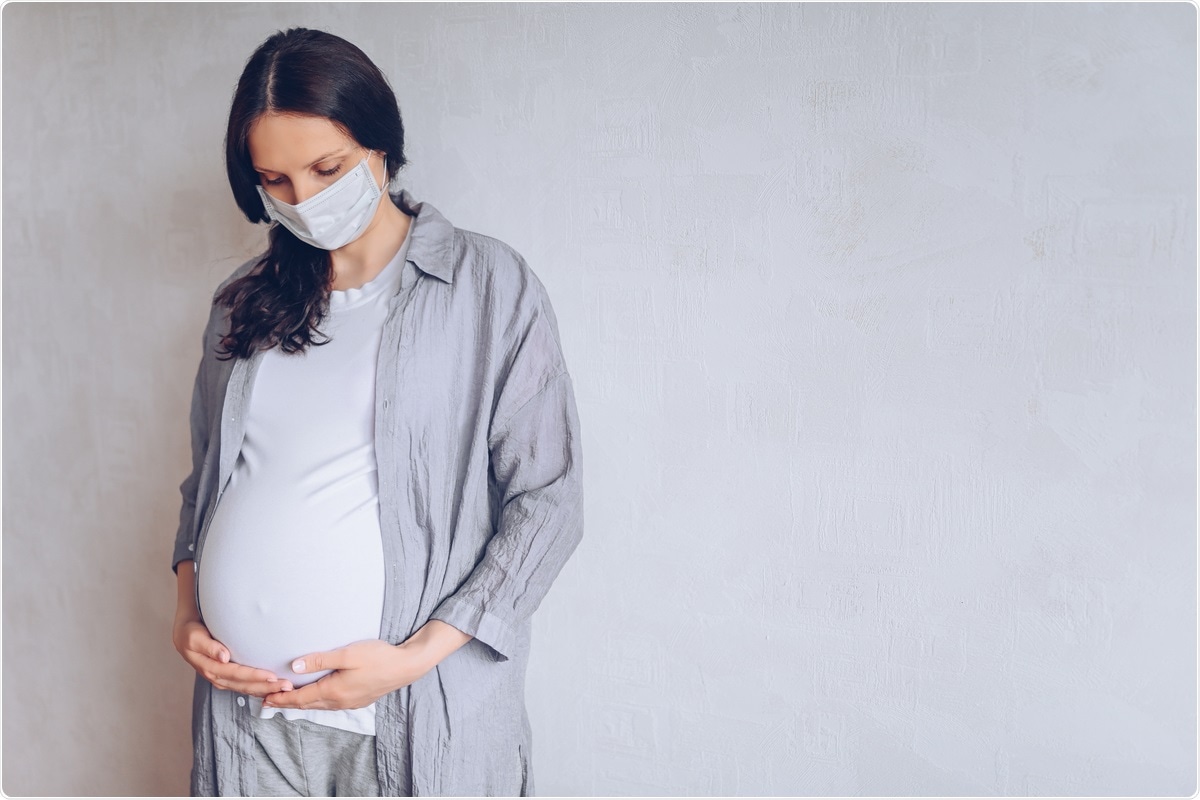The coronavirus disease 2019 (COVID-19) pandemic caused by severe acute respiratory syndrome coronavirus 2 (SARS-CoV-2) challenged scientific and clinical expertise, thereby exposing the shortcomings in understanding the virus and exposing the gaps that existed in healthcare delivery systems throughout the world.
 Study: Pregnancy Influences Immune Responses to SARS-CoV-2. Image Credit: Alina Troeva/ Shutterstock
Study: Pregnancy Influences Immune Responses to SARS-CoV-2. Image Credit: Alina Troeva/ Shutterstock
Following the emergence of SARS-CoV-2, several studies were carried out to investigate innate and adaptive immune responses to viral infection and vaccination in different clinical cohorts. However, most of these studies excluded lactating and pregnant women who constituted a highly vulnerable population to develop severe COVID-19 infections. Furthermore, pregnant women were not included in the clinical trials that led to the approval of the mRNA-1273 and BNT162b2 COVID-19 vaccines.
A focus article published in Science Translational Medicine highlighted two recently published studies that investigated the response of pregnant women to natural infections and COVID-19 vaccines. It also helped to demonstrate antibody responses in pregnant and lactating women upon infection and vaccination.
Pregnancy: a unique immunological state
Pregnancy is a unique biological state where a balance of immunotolerance towards the fetus is achieved that further protects the pregnant woman against infectious diseases. The balancing act is trivial since the immune system can be affected by both maternal components and paternal components such as the placenta. The placenta is a fetal-derived organ and can be of female or male origin.
Numerous systemic changes occur concerning innate and adaptive immunity in pregnant women, making them more susceptible to influenza and SARS-CoV-2. However, timely immunization can protect pregnant women directly and the fetus passively by transfer of antibodies.
The passive transfer of antibodies occurs through the placenta and breastmilk that equips the infant with functional immunoglobulin (Ig). Maternal IgG is transferred to the fetus by binding to the Fc-domain receptors (FcRs) located on the surface of the syncytiotrophoblast cell layer of the placenta. Differential glycation of the antibody Fc-domain determines the quantity of the antibody that is transferred. After parturition, mothers also transfer IgA-isotype antibodies through the breastmilk.
Once the maternal antibodies enter the neonatal circulation, they can coordinate diverse immune functions such as antigen neutralization, non-neutralization, and cell-mediated functions. Diverse antibody responses are generated by natural infection as well as prophylactic immunization. Thus, resultant antibodies can differ depending upon the method of antigen exposure. These differences, in turn, can alter the functional nature of the antibodies, their capacity to be delivered to the fetus, and their biological function.
Quality of antibodies in the context of pregnancy and SARS-CoV-2 immunization
One of the studies involved a systems serology approach to phenotype the anti-SARS-CoV-2 antibodies in the sera of pregnant, non-pregnant, and lactating women following administration of mRNA-1273 or BNT162b2 COVID-19 vaccines. The results indicated that pregnant women showed lower SARS-CoV-2 antibody titers, restricted IgG subclass responses, and a decreased FcR binding capacity following the first dose of the vaccine as compared to non-pregnant women. However, minimal differences were observed after the second dose between pregnant and lactating women and non-pregnant women. Only in the case of lactating women, increased natural killer (NK) cell-activating antibodies were observed following the second dose of vaccination.
Furthermore, differences in responses to each mRNA vaccine formulation were observed in pregnant women. In the case of mRNA-1237, the immune responses were enriched for neutrophil and NK cell-recruiting antibodies. In contrast, in the case of BNT162b2, they were more enriched for less specific IgG1 and FcRϒIIIa-binding antibodies.
Concerning passive immunity, higher SARS-CoV-2 antibodies were observed in maternal sera as compared to cord sera. This reduction in the transfer was most likely due to immunization at a later stage of the pregnancy. Additionally, this reduction in transfer may be due to a lower abundance of FcRϒIIIa-binding antibodies in pregnant women. However, in the case of lactating women, higher antibodies with greater functional and FcR-binding qualities were observed after vaccination.
Influence of fetal sex on maternal immunity in COVID-19 infection
The other study involved the investigation of the antibody and antiviral interferon responses in COVID-19 infected and uninfected pregnant women and whether the sex of the fetus had an impact on these responses. To determine the effect of fetal sex on the antibody response, the anti-SARS-CoV-2 antibody titers were quantified along with functions and specificities in maternal and cord blood sera of pregnancies with female and male fetuses.
The results indicated that mothers carrying male fetuses had lower titers of IgG antibodies for all SARS-CoV-2 specific antigens. This suggests that the fetal sex affects the maternal antibody responses. Furthermore, the transfer ratio of SARS-CoV-2 antibodies was lower in cord blood for male pregnancies as compared to female pregnancies
Additionally, placental staining and genome analyses were done to determine whether sex-specific differences in placental FcR expression existed. The results indicated an increased expression of FcRn, FcRϒII, and FcϒRIII, as well as increased co-localization of FcRn and FcRϒIII in the case of the male-derived placenta. Glycan profiling revealed that in the case of male pregnancies, higher titers of antibodies were modified by glycosylation and fucosylation. Fucosylated antibodies are less efficiently transferred by the FcRϒIIIa-binding that explains the lower IgG transfer in the case of male pregnancies.
Conclusion
The studies discussed were quite effective in determining the antibody responses of pregnant women infected with SARS-CoV-2 and the effect of the fetal sex on these responses. Furthermore, there are direct clinical implications for COVID-19 infection as well as future maternal-fetal vaccination strategies. The studies also emphasized the incorporation of pregnant women at different stages of gestation in the clinical trials for the development of vaccines.
- Ovies, C. et al. (2021). Pregnancy influences immune responses to SARS-CoV-2. Science Translational Medicine. doi: 10.1126/scitranslmed.abm2070.
Posted in: Medical Science News | Medical Research News | Disease/Infection News
Tags: Antibodies, Antibody, Antigen, Blood, Cell, Coronavirus, Coronavirus Disease COVID-19, FcRn, Genome, Glycan, Glycation, Glycosylation, Healthcare, Immune Response, Immune System, immunity, Immunization, Immunoglobulin, Infectious Diseases, Influenza, Interferon, Medicine, Pandemic, Phenotype, Placenta, Pregnancy, Respiratory, SARS, SARS-CoV-2, Serology, Severe Acute Respiratory, Severe Acute Respiratory Syndrome, Syndrome, Vaccine, Virus

Written by
Suchandrima Bhowmik
Suchandrima has a Bachelor of Science (B.Sc.) degree in Microbiology and a Master of Science (M.Sc.) degree in Microbiology from the University of Calcutta, India. The study of health and diseases was always very important to her. In addition to Microbiology, she also gained extensive knowledge in Biochemistry, Immunology, Medical Microbiology, Metabolism, and Biotechnology as part of her master's degree.
Source: Read Full Article